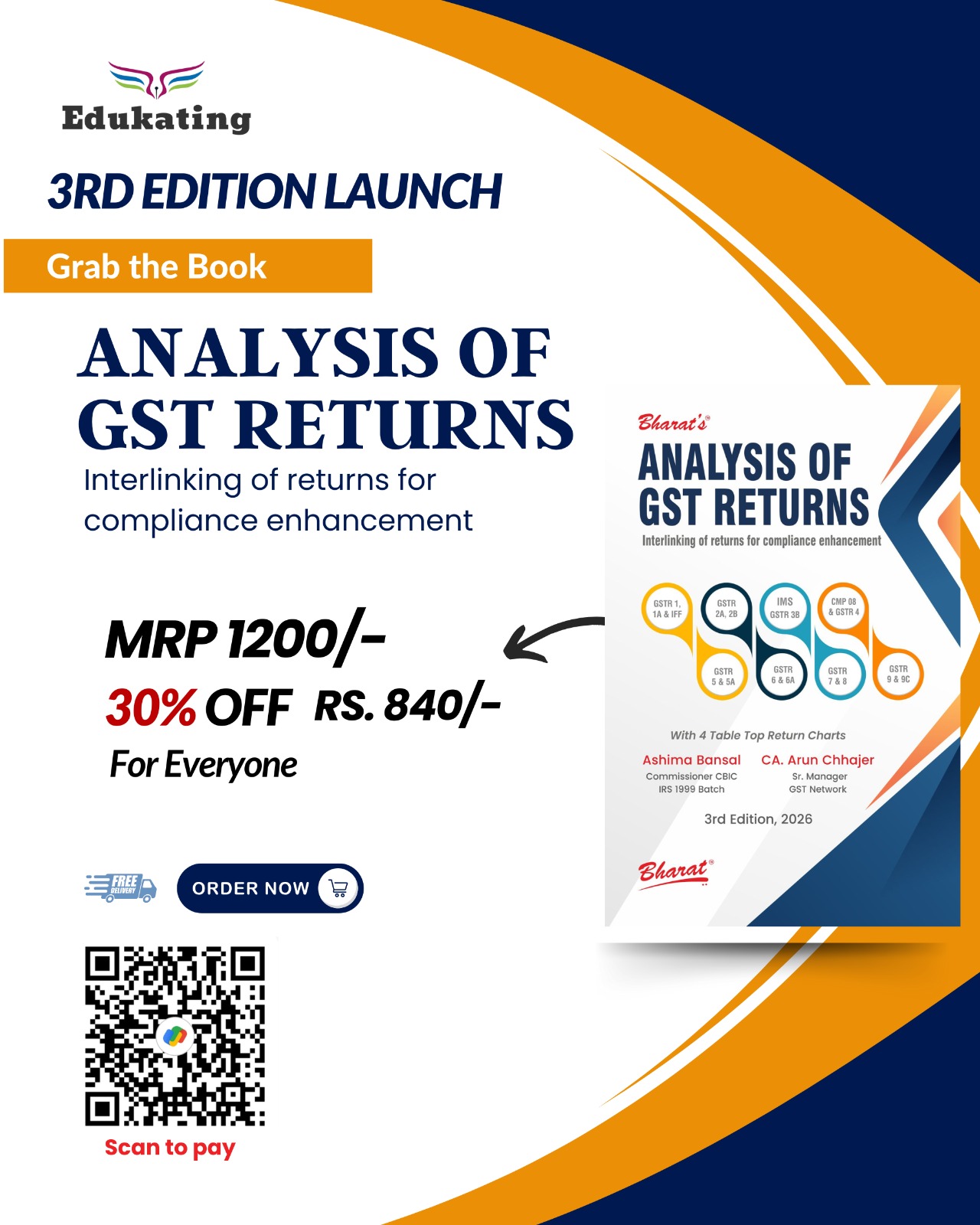Income tax - Meaning, Taxpayers, Income Heads, and more
What is the Income Tax?
Income tax refers to the tax that the government imposes on the income generated by individuals or businesses during a financial year. Income, here, is classified into various heads, which we will know about later in the article. Individuals or businesses earn income during the financial years and pay taxes on that income to the government. These taxes are charged at slab rates specified by the government under the Income Tax Act.
Income tax is a major source of revenue for the government. The government uses this revenue for the welfare of our country and its citizens. These welfare schemes are: developing infrastructure, building schools, and institutions, providing subsidies to farmers, providing healthcare to citizens, etc.
Who is Liable to Pay Income Tax?
Under the Income Tax Act, various taxpayers are classified as those who are liable to pay Income Tax to the government. Those taxpayers are as follows:
- Individuals
- HUF or Hindu Undivided Family
- AOP or Association of Persons
- BOI or Body of Individuals
- Companies
- Firms
Individuals are further classified as:
- Resident Individuals: who are liable to pay Income Tax on income earned in India as well as outside India. These are further classified as:
-
- Individuals up to the age of 60 years
- Individuals of age more than 60 years but less than 80 years (or senior citizens)
- Individuals of age more than 80 years (or super senior citizens)
- Non-Resident Individuals: who are liable to pay Income Tax on income earned or accrued only in India.
Note: The Income Tax slab rate under the Income Tax Act is different for every individual.
Note: The residential status of the individual has to be determined separately for every financial year as per the provisions provided under the Income Tax Act.
Different Heads of Income
The Income Tax Act has classified the income into five major heads which are as follows:
- Income from Salary: Salary and pension incomes are covered or taxable under this head
- Income from house property: This head covers any income earned through renting of house property.
- Income from business and profession: This includes business or professional income earned by businesses, professionals, and self-employed individuals. Professionals here can be chartered accountants, doctors, advocates, etc.
- Income from capital gains: Any income generated through the sale of long-term or short-term capital assets is taxable under the head income from capital gains. Examples of capital assets are shares, mutual funds, property of any kind, etc.
- Income from other sources: This head includes income like interest from the savings account or fixed deposits or dividends or winnings from lottery etc.
Income Tax Glossary
Assessee: Under the income tax act, an assessee means a person or a group by whom any tax or other sum of money is payable. An assessee can be an individual or firm or company or AOP/BOI etc.
Financial year: It refers to the calendar year in which the assessee generates income. It begins from 1st April of the calendar year to 31st March of the next calendar year.
Assessment year: It refers to the year in which an individual files the return of income generated during the previous year. For the financial year 2020-2021, the assessment year will be 2021-2022.
Tax regime: Tax regime refers to the tax slabs and rates prescribed under the Income-tax law. In budget 2020, the government introduced a new tax regime with a higher tax rate with more tax-saving options. However, both old and new tax regimes are available for the assessee as of now.
Taxable income: It defines as the income of an individual or business which is chargeable to tax. Taxable income is calculated after deducting all exemptions and other deductions. Hence, it is generally referred to as adjusted income minus deductions.
Exempt income: It refers to the income which is not chargeable to tax under the income tax law. Exempt Income is not included in the total income while computing taxable income for the purpose of payment of tax.
Income Tax Return: An income tax return is a form that a taxpayer files to the Income Tax department of India. This form contains information related to a taxpayer’s income and tax paid during the previous year.
Income Tax Return Filing: This is a process through which a taxpayer calculates his or her income and tax liability for the financial year and pays it to the government. The tax liability paid is calculated after making a lot of adjustments and deductions from the income earned during the previous year.
ITR Forms:
- ITR 1: is for resident individuals having income less than fifty lakh rupees under the income head salary, house property, and other sources.
- ITR 2: is for directors of a company, individuals holding unlisted equity shares of a company, individuals, and HUF having income other than income from PGBP.
- ITR 3: is applicable for individuals working as a proprietor and earning income from profit and gain from business and profession.
- ITR 4: is for individuals who have opted for presumptive taxation schemes and have income other than PGBP.
- ITR 5: is specifically for firms, AOP/BOI, LLP, cooperative society, local authorities, or any artificial judicial person.
- ITR 6: is for all companies except companies that claim an exemption under section 11 of the Income Tax Act 1961
- ITR 7: is applicable for persons or companies specified under sections 139(4A), (4B), (4C), and (4D) of the Income Tax Act 1961.
Income Tax slab rates:
Under the old tax regime:
|
Income |
Tax Rate |
|
Up to Rs. 2.5 lakhs |
nil |
|
From Rs. 2.5 lakhs to Rs. 5 lakhs |
5% |
|
From Rs. 5 lakhs to Rs. 10 lakhs |
20% |
|
Above Rs. 10 lakhs |
30% |
Under the new tax regime:
|
Income |
Rate |
|
Up to Rs. 2.5 lakhs |
nil |
|
From Rs. 2.5 lakhs to Rs. 5 lakhs |
5% |
|
From Rs. 5 lakhs to Rs. 7.5 lakhs |
10% |
|
From Rs. 7.5 lakhs to Rs. 10 lakhs |
15% |
|
From Rs. 10 lakhs to Rs. 12.5 lakhs |
20% |
|
From Rs. 12.5 lakhs to Rs. 15 lakhs |
25% |
|
Above Rs. 15 lakhs |
30% |






























































